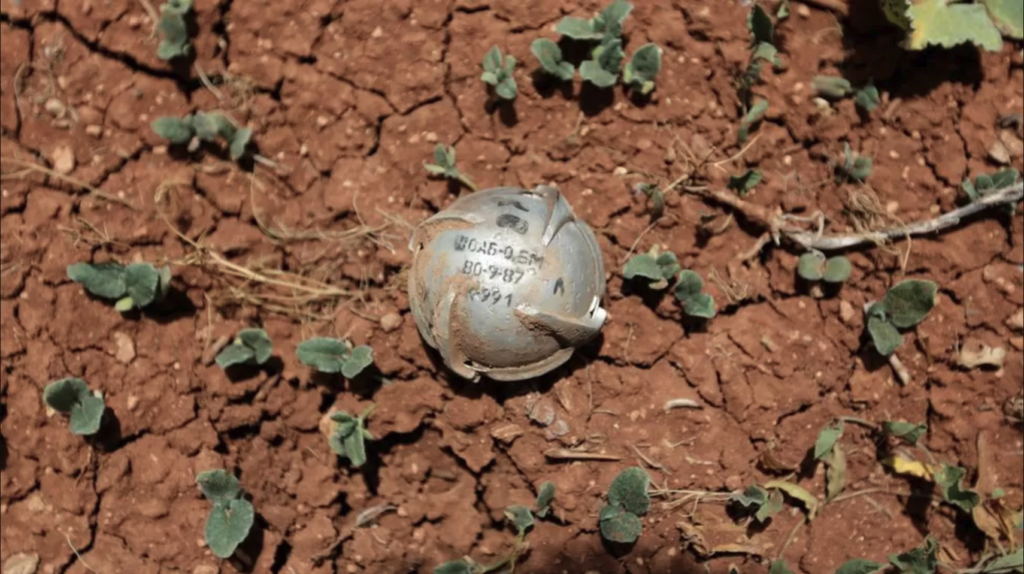
Published 07/10/2023 18:02 | Edited 07/11/2023 07:16
The United States has announced that it is complying with a Ukrainian request to supply the controversial cluster munitions, because it considers that Ukraine is running out of ammunition to defend itself.
The measure was criticized by human rights groups, as the weapon is banned by more than 100 countries. Human rights groups describe cluster munitions as “abominable” and have even labeled them a war crime.
At the start of the war, when the White House was asked about allegations that Russia was using cluster and vacuum bombs, the then press secretary said it would be a potential “war crime” if true. Now, the US finds itself on this immoral terrain that generates division among allies.
A spokesman for the Russian Ministry of Defense described the action as an “act of desperation” and “evidence of helplessness in the face of the failure of the much publicized Ukrainian ‘counter-offensive'”. Last week, Ukraine’s military commander-in-chief Valery Zaluzhny said the recent campaign had been hampered by a lack of firepower and expressed frustration with the West’s promised arms deliveries.
Read also: Lula wants an end to sending arms to Ukraine and calls for peace negotiations
Cluster munitions are a method of fragmenting a large number of small bombs from a rocket, missile or artillery shell and scattering them in mid-flight over a wide area. They have a low failure rate and can remain on the ground ready to be detonated, which creates a minefield for civilians.
By exploding later when picked up or stepped on, they kill or maim the victim. In southern Lebanon, cluster munitions fired by Israel during the 2006 war continue to endanger civilians to this day.

cluster treaty
More than 100 countries, including the UK, France and Germany (and most other NATO countries), have signed an international treaty – the Convention on Cluster Munitions – which prohibits the use or stockpiling of these weapons.
However, neither Russia, Ukraine nor the US has signed the Convention. But the United States has been highly critical of Russia’s excessive use of the weapon, while turning a blind eye to Ukrainian use.
US President Joe Biden said it took “a while to be convinced to do this”, but he acted because “Ukrainians are running out of ammunition”.
Read also: Lula vetoes sending ammunition to war in Ukraine and preaches peace
Ukrainian President Volodymyr Zelensky thanked the US president for a “timely, comprehensive and much-needed” military aid package worth $800 million.
UK Prime Minister Rishi Sunak has suggested the country “discourage” the use of cluster bombs, while Spanish Defense Minister Margarita Robles has said her country has a “firm commitment” that certain weapons and bombs cannot be sent to Ukraine.
But Germany, which is a signatory to the treaty, said that while it would not supply Ukraine with such weapons, it understood the US position. “We are sure that our American friends did not take the decision to supply such ammunition lightly,” said German government spokesman Steffen Hebestreit.
NATO Secretary General Jens Stoltenberg suggested that the alliance not take a position on the issue, leaving it to individual states to make their own policies.
Read also: Ukrainian army uses banned ammunition
National Security Adviser Jake Sullivan said at Friday’s White House daily briefing that officials “recognize that cluster munitions create a risk of civilian harm” due to unexploded bombs. But he also admits that the production of this type of weapons can cover a gap between the production of other weapons. “We will not leave Ukraine defenseless at any point in this period of conflict,” he said.
There was a mixed reaction among the US President’s Democratic Party. More than a dozen lawmakers spoke out against the plan.
The US Cluster Munitions Coalition, which is part of an international civil society campaign working to eradicate guns, said they would cause “greater suffering, today and for decades to come”.
Sarah Yager, director of Human Rights Watch in Washington, called the US action “devastating”. “They are absolutely horrible for civilians.” Yager said in a television interview. “I think when lawmakers and policymakers here in the United States see the pictures of children with amputated limbs, injured parents, killed by our own American cluster munitions, there will be a real awakening to what a humanitarian disaster this is.”
Read also: War and peace in Ukraine, by Paulo Nogueira Batista Jr
The UN human rights office was also critical, with a representative saying “the use of such munitions must stop immediately and must not be used anywhere”.
Source: vermelho.org.br

